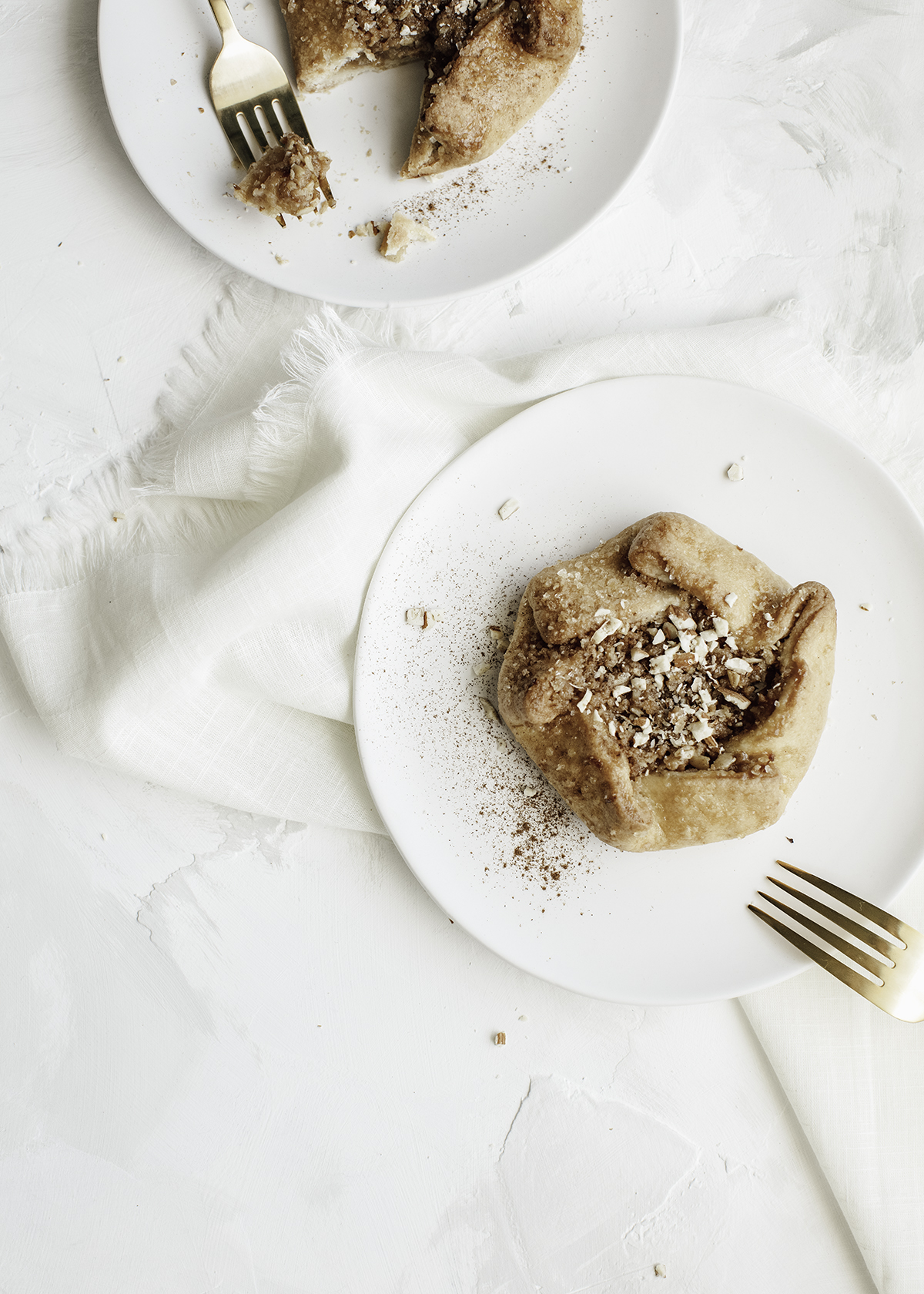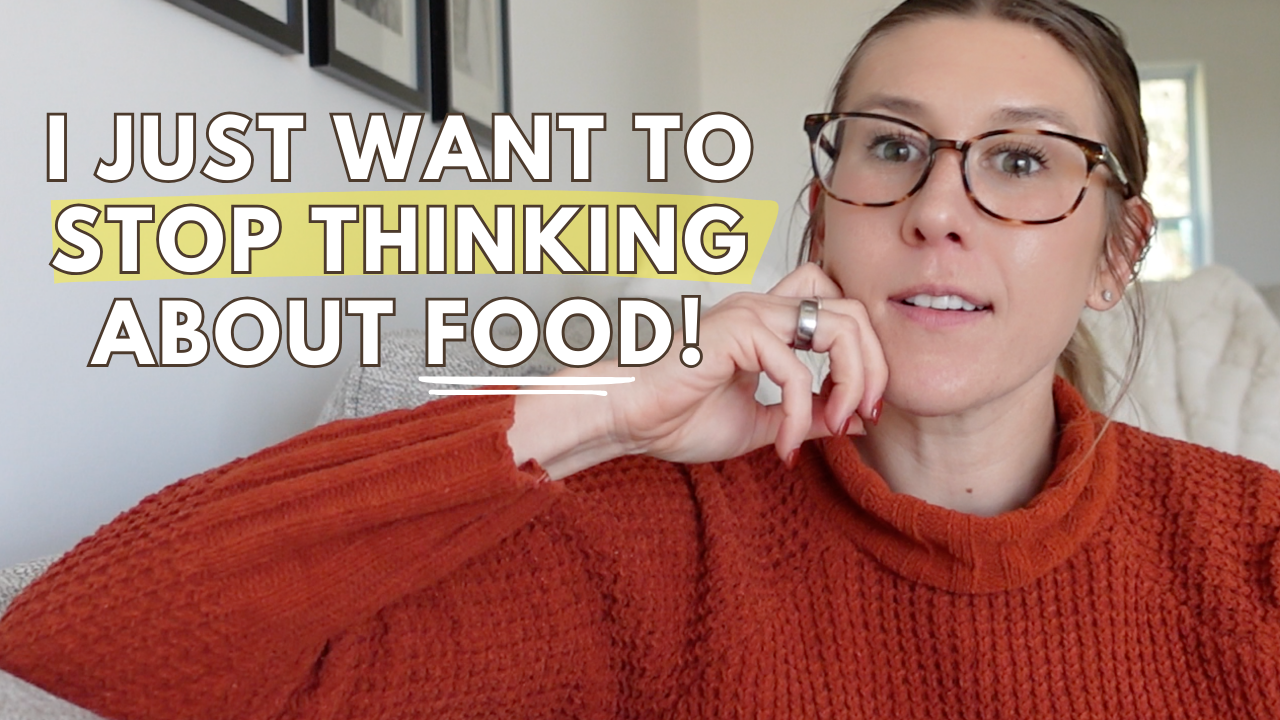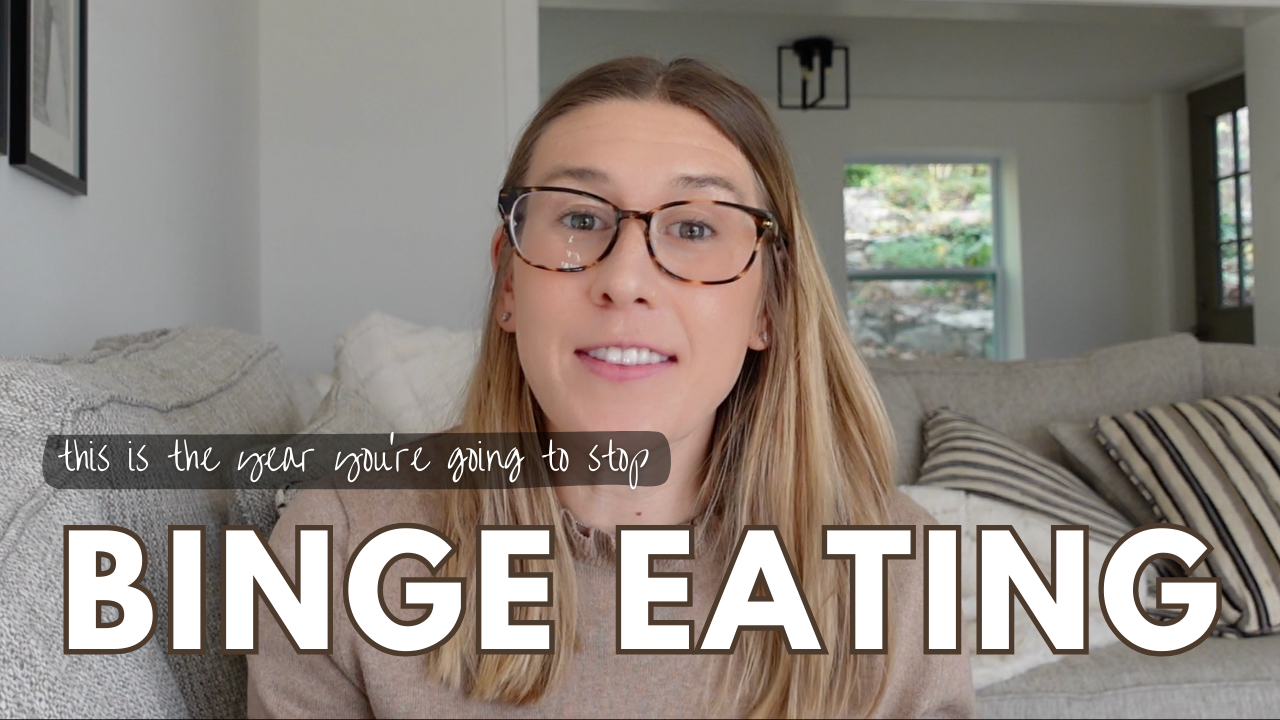How to Stop Overeating When Food is Irresistibly Good
January 30, 2022

Hey There, I'm Ryann Nicole.
I’m a recovered binge eater who changed the story from something that happened to me to something that happened for me. Now, I’m a licensed therapist teaching you to do the same.
My mission? To help you ditch food stress and live your life with mental peace and freedom every single day!
Have you ever found yourself unable to stop eating when faced with a mouthwatering, delicious meal, even when you’re already full? You’re not alone in this struggle. It often feels like a mental tug-of-war between your senses and your cravings. In this blog post, we’ll explore the two main reasons why you might overeat when food tastes exceptionally good and offer practical tips to help you enjoy your favorite meals without the discomfort of ending it unpleasantly full.
Why The Overeating Might Be Happening
There are two primary explanations for the overeating tendencies – can you identify with either of these?
01) The Food is So Delicious You Don’t Want to Stop:
When you encounter a truly delectable dish, your brain releases dopamine, the feel-good chemical that brings pleasure and happiness. It’s entirely natural to want to savor every bite. Occasionally overindulging in such moments is nothing to be concerned about. Instead of feeling guilty, listen to your body and soothe any discomfort, and carry on.
02) You’re Stuck in a Food Scarcity Mindset
The food scarcity mindset is the belief that this food won’t be available in the future, so you must eat it all now. If you’re convinced that this particular treat won’t come around again or that you’re forbidden from enjoying it again, it’s easy to fall into the trap of overeating when food tastes amazing. Breaking free from this mindset is the key to balanced eating.
Ways to Improve Your Ability to Honor Fullness
Instead of beating yourself up over occasional overindulgence in delicious food, consider these strategies to help you better honor your fullness without discomfort:
- Prioritize Honoring Hunger: Listen to your body’s signals. Start eating when you’re genuinely hungry and stop when you’re satisfied, even if the food is irresistible.
- Reconnect with Your Body’s Signals: Practice recognizing the physical sensations of hunger and fullness. This will help you understand when it’s time to stop eating.
- Build Satisfying Meals: Create balanced meals that satisfy your cravings and nutritional needs. This can help prevent overeating later.
- Offer Yourself Compassion: Be kind to yourself. Remember that occasional indulgence is normal and nothing to feel guilty about. Treat yourself with self-compassion.
- Remember the Difference Between Fullness Levels: Recognize that the only difference between eating to the point of fullness and eating slightly less is when you’ll feel hungry again, sooner or later.
Overeating when food is incredibly good is a common experience, and it’s okay. By understanding the reasons behind this behavior and practicing mindfulness, you can enjoy your favorite foods without the discomfort of overindulgence. Prioritize listening to your body’s signals, reconnect with your sensations of hunger and fullness, and treat yourself with compassion. Ultimately, it’s about finding a balance that allows you to savor those irresistible dishes without leaving you uncomfortable.
⚠️ Important Notice ⚠️
Please note that the following may not be effective if:
- You are restricting or not consuming sufficient calories.
- You are not open to including all types of foods in your diet.
- You are planning your next diet or restrictive eating regimen.
- You begin eating when you are overly hungry, which can lead to overconsumption.
- You are overly critical of your food choices.
Remember, the journey to heal your relationship with food is a crucial first step. Learning to honor your fullness comes as a subsequent part of this process. Be patient and consistent in your efforts. By embracing the abundance of food and practicing mindful eating, you’ll find that the urge to overindulge diminishes over time.
10 Things To Add To Your Coping Box
Just so you know, I do review everything I recommend. When you buy through links on this page, we may earn a commission.
An emotional coping box, also known as a self-soothe or comfort box, is a personalized collection of items that can help individuals cope with difficult emotions, stress, or challenging situations. It’s a tangible and accessible resource that provides comfort and distraction during moments of distress. Here are 10 things you can consider adding to your emotional coping box:
Include items that bring you comfort, such as a soft blanket, stuffed animal, or cozy socks. These tactile objects can provide a sense of security and grounding.
Write down or print out affirmations and positive quotes that resonate with you. Reading these affirmations can help shift your mindset and promote self-compassion.
Incorporate items that engage your senses, such as scented candles, essential oils, or stress-relief lotion. Pleasant scents can have a calming effect.
Include small items like stress balls, fidget spinners, or textured toys. These can serve as a physical outlet for nervous energy and help redirect focus.
Keep a journal or notebook to write down your thoughts, feelings, and reflections. Journaling can be a therapeutic way to express and process emotions.
Include pictures of loved ones, happy memories, or items that hold sentimental value. Visual reminders of positive experiences can bring comfort and perspective.
Guided Relaxation or Meditation Resources
Include a small audio player or device with pre-loaded guided relaxation or meditation sessions. These can help you practice mindfulness and manage stress.
Playlist of Uplifting Music
Create a playlist of music that brings you joy or relaxation. Music has the power to influence mood, and having a go-to playlist can be a quick mood booster.
List of Coping Strategies
Write down a list of healthy coping strategies that work for you. This could include deep breathing exercises, progressive muscle relaxation, or simple activities that bring you a sense of peace.
Remember, the contents of your emotional coping box should be tailored to your preferences and needs. Regularly review and update the items to ensure they remain effective for you over time. The goal is to have a readily available toolkit that supports your emotional well-being during challenging moments.
check out the pod
Ways I Can Support You
01 Coaching
Intimate group coaching to break free from binge eating
02 podcast
Real talk on food, mindset shifts, motherhood, and finding peace.
03 support group
A safe space to connect with others on the same journey.
04 free coaching
Have real conversations and hear others share their struggles.
Ryann Nicole
Licensed Therapist, Certified Nutritionist, and Virtual Wellness Coach
Ryann is a licensed therapist and virtual wellness coach who has assisted individuals worldwide in establishing a healthier relationship with food and their bodies.
Are You Ready to Heal Your Relationship With Food?
I understand—it can be overwhelming to figure out where to begin. Let's simplify things and have you start right here:
Why Am I Overeating?
First Steps To Stop Binge Eating
The Ryann Nicole
Podcast
FREE QUIZ
FREE GUIDE
Podcast
the food freedom lab podcast




